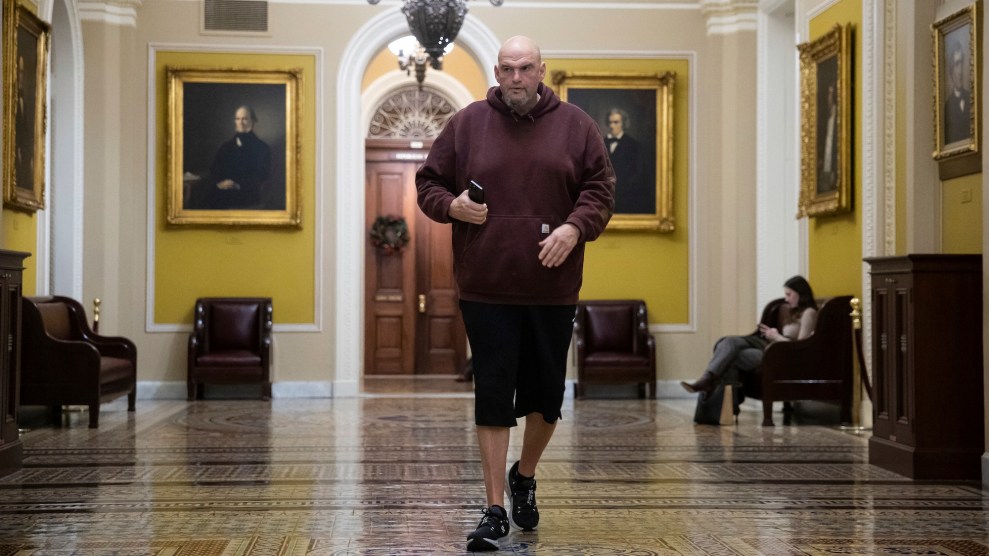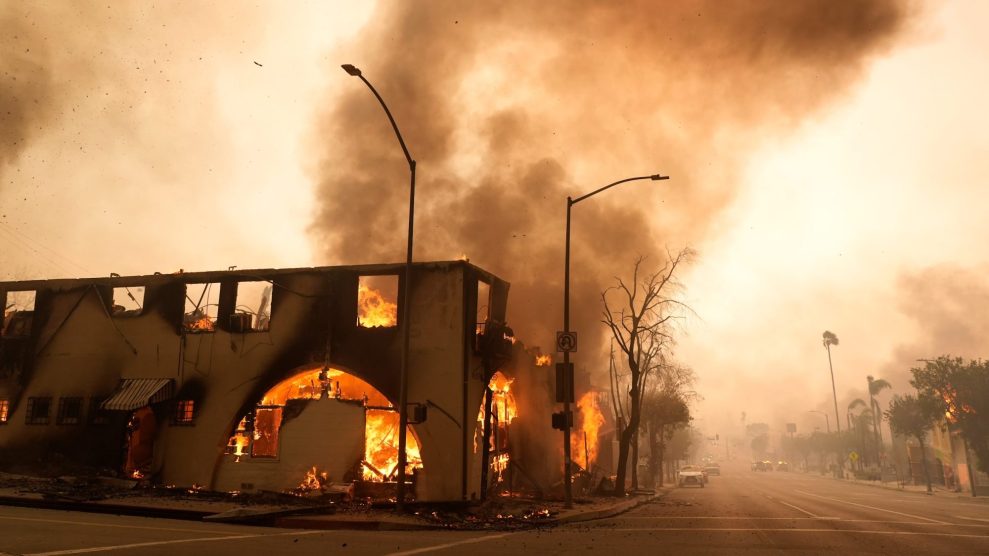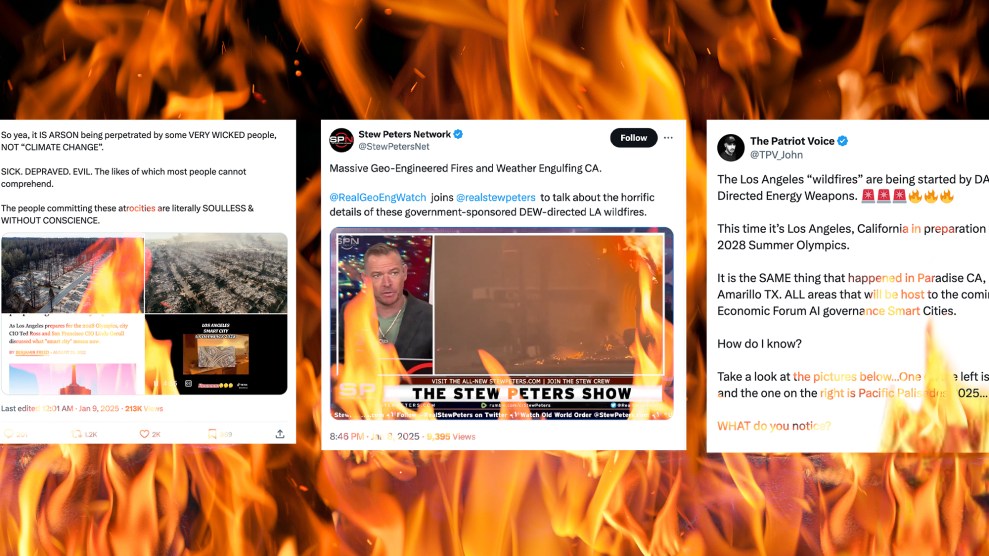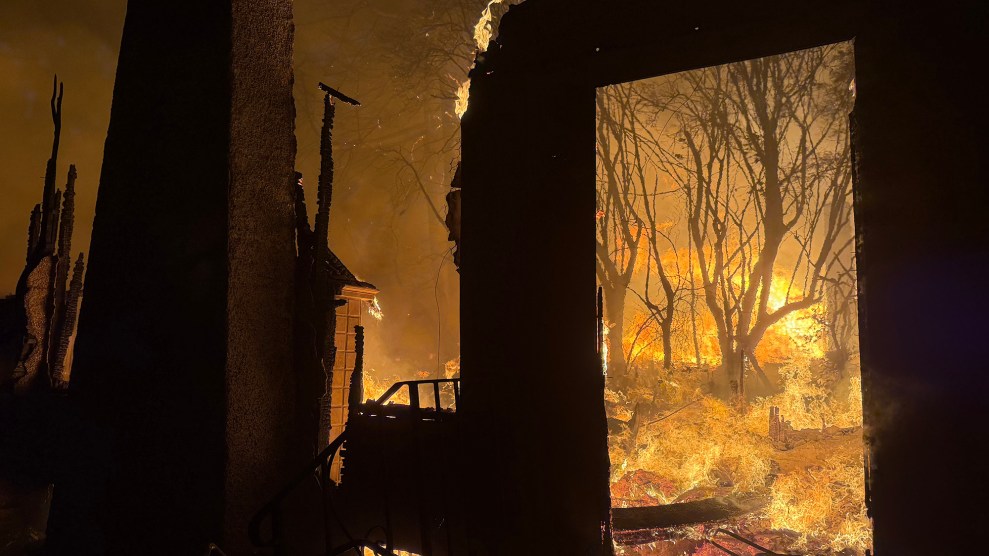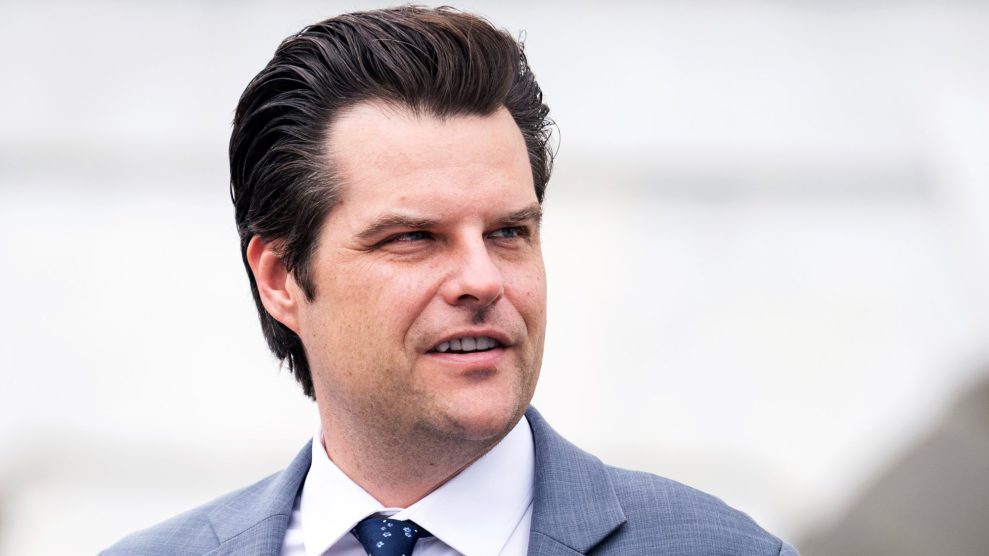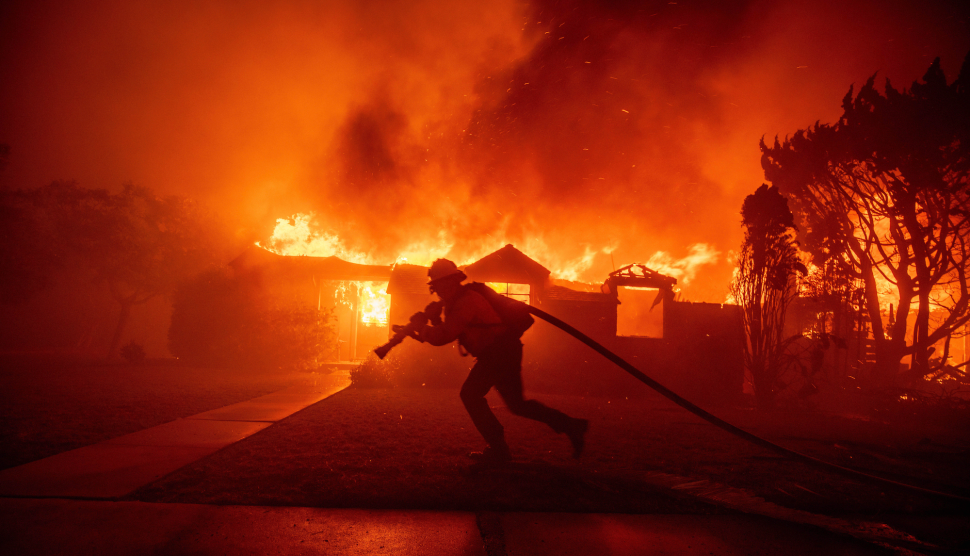
The Oleo Strut was a coffeehouse in Killeen, Texas, from 1968 to 1972. Like its namesake, a shock absorber in helicopter landing gear, the Oleo Strut’s purpose was to help GIs land softly. Upon returning from Vietnam to Fort Hood, shell-shocked soldiers found solace amongst the Strut’s regulars, mostly fellow soldiers and a few civilian sympathizers. But it didn’t take long before shell shock turned into anger, and that anger into action. The GIs turned the Oleo Strut into one of Texas’s anti-war headquarters, publishing an underground anti-war newspaper, organizing boycotts, setting up a legal office, and leading peace marches.
David Zeiger was one of the civilians who helped run the Oleo Strut. He went on to a career in political activism and today, at 55, he is a filmmaker and the director of Sir! No Sir!, a new documentary on the all-but-forgotten antiwar activities of GIs from Fort Hood to Saigon. The GI Movement, as it was then known, was composed of both vets recently returned from Vietnam and active-duty soldiers. They fought for peace in ways big and small, from organizing leading anti-war organizations to wearing peace signs instead of dog tags. By the early ‘70s, opposition to the Vietnam War within the military and amongst veterans had grown so widespread that no one could credibly claim that opposing the war meant opposing the troops. Veterans wanted an end to the war; their brothers in Vietnam agreed.
Zeiger put off making this movie for years, convinced the public didn’t want to hear another story about the ‘60s. What finally spurred the project was the Iraq War and the role some Vietnam vets are playing in keeping America’s young men and women from seeing the same horrors they saw. When GIs from the current war started coming home and wondering what they’d been fighting for, Zeiger’s days at the Oleo Strut took on a new relevance. His film is a remarkable interweaving of vets’ stories about their intensifying resistance to the war, starting with the lone objectors of the late ‘60s and culminating with open disobedience throughout the ranks in the ‘70s. One vet even recalls an episode from 1972 in which Military Police joined enlisted men in burning an effigy of their commanding officer. The images that accompany such stories are just as powerful. As a young doctor is escorted into a military court for refusing to train GIs, hundreds of enlisted men lean out of nearby windows extending peace signs in support. It’s an image that the Army didn’t want the American people to see then, and probably wouldn’t want the American people to see today.
Sir! No Sir! won the Documentary Audience Award at the L.A. Film Festival and is slated for broad release before the end of the year. David Zeiger spoke with MotherJones.com from the Los Angeles office of his production company, Displaced Films.
MotherJones.com: Talk a little about your history with the GI Movement.
David Zeiger: In the late ‘60s I reached a point where I believed that there was really no alternative for me than to become part of the movement against the war. My opposition to the war had grown very deeply but I hadn’t been really involved in anything. I starting looking around for what was going to be the most effective place and situation to help. I ran into this small group from the GI Movement, some vets and some civilians from Fort Hood in Killeen, Texas. It became obvious to me very quickly that this was the most solid, most direct way to go after the war. It was a situation where people were opposing the war that no one thought would oppose the war. Not just because they were GIs. These were mostly working class guys, guys who had gone into the military out of patriotic motives or because that was just what you did. And they were becoming one of the strongest forces against the war.
MJ: What brought you back to the project, some 35 years later?
DZ: I started making films in the early ‘90s. I always knew that this story was one that needed to be told and had never been told. But the way I always characterized it was, “This is a film that needs to be made but I’m never going to make it.” At the time, it just wasn’t a film that would have much resonance for people. It would be another story from the ‘60s. What prompted me to make the film was September 11, and the War on Terror’s segue into the Iraq War. I saw that this had suddenly become a story that would have current resonance, something that would immediately connect with what’s going on today.
MJ: How did you find the veterans that appear in the film?
DZ: Several of these guys were people I knew because I had been at Fort Hood. Then there were veterans’ organizations like Vietnam Veterans Against the War and Veterans For Peace—I put a call out for stories through their various means of communication. I also ended up [getting] in touch with people nobody had ever heard of before. Their missions were so top secret they were under threat of federal prosecution if they went public with any of their stories. They came to me and basically said, “We want to finally tell our story. We haven’t been able to tell it for 35 years.” We still don’t know what will happen to them. We’ll know when the film is in theaters.
Also, Several books played a big role in keeping memory of the movement alive and giving me the foundation for the film — especially Soldiers in Revolt by David Cortright, and A Matter of Conscience: GI Resistance Furing the Vietnam War by William Short and Willa Seidenberg.
MJ: Did it take any effort to get the veterans to open up—the public conception of the Vietnam vet is of a man too pained to talk openly about his experiences.
DZ: Yeah, that’s a very big myth. In this situation that was not at all a problem. These are people whose stories had been suppressed and ignored since the war. They knew that their story was a story of the Vietnam War that needed to be told. For most of these veterans, it was more a matter of finally being able to tell their story, stories the overall zeitgeist was against being told. It was not a matter of reluctance.
MJ: The film has already gotten a good deal of interest in Europe. Do you anticipate that domestic interest will be as strong?
DZ: Well, yeah, how to put this? I anticipate that kind of interest, but until the film was made I think U.S. television didn’t quite get how relevant the film is in the current world. It was hard to explain that to people. Now that the film is made we’re getting much stronger interest. A big strength of the film, and what I think is going to bring it into the mainstream, is that this is historical metaphor. We don’t have to say a word about Iraq in the film for it to be clearly identified with Iraq for people. But [because it doesn’t mention Iraq], the film can’t be shoved into the category of a propaganda film.
MJ: You mentioned that you were a civilian organizer at Fort Hood during the Vietnam War. At that time, was the civilian public widely aware of the GI Movement?
DZ: The evidence suggests that they were. As you see in the film, there were CBS Nightly News stories about the GI Movement. There is a segment in the film of Walter Cronkite talking about the GI underground press. In the state of Texas, where there was a very large anti-war movement in Austin and Houston, and the center of the Texas movement for a time was at Fort Hood. The armed forces demonstrations were major events for the whole state. I think people knew generally that there was opposition in the military, but they didn’t know the details or how widespread it was. But it was certainly more prominent than people remember it. It has been thoroughly wiped out of any histories of the war.
MJ: How visible was the GI Movement amongst American soldiers in Southeast Asia? Were they aware that their fellow soldiers were protesting the war on bases abroad and in the States?
DZ: Yes. The GI anti-war press was everywhere. Just about every base in the world had an underground paper. Vietnam GI was the first GI paper. It was sent directly to Vietnam from the U.S. in press runs of 5,000 and they were getting spread all over the place because they’d be handed from person to person. Awareness of the GI Movement was at different levels but it was still very widespread.
MJ: How did the GIs manage to write and print these papers, especially when their actions were, presumably, being watched?
DZ: That was where the coffeehouse came in. [The GIs] did the work, for the most part, off base. At the Oleo Strut we had an office that they worked in and we had a printer that would print it for us. Some of these papers would get mimeographed secretly on the military bases because the guys working on them would be clerks and they had access to the proper resources. So there was a range, from something someone had typed up and mimeographed and got out about 500 copies of, to these pretty sophisticated papers like the Fatigue Press at Fort Hood, where we’d have a press run of 10,000 copies. We’d hand them out off base but they’d also be distributed on base. Guys snuck on base and would go through barracks and put them on beds and foot lockers.
One story we didn’t put in the film was about some guys at Fort Lewis near Seattle. They wanted to bring GIs to an anti-war demonstration, but they didn’t have an underground paper yet. They took a bunch of leaflets on base late at night and drove around throwing the leaflets out the window. In the military, if there’s litter on the base the brass doesn’t pick it up; they send out the GIs out to police the base and pick it up. So the next morning they sent several companies out to pick up all this litter and before they realized what this litter was, it was too late. It’s funny: repression breeds innovation.
MJ: The movie talks a lot about the GI coffeehouses and how some of them were attacked and shut down. Did GIs ever claim their First Amendment rights were being thwarted?
DZ: Yes, and there were cases that went all the way to the Supreme Court about that. The Supreme Court fairly consistently ruled that so-called “military necessity” trumped free speech. But there was a tremendous support network of lawyers during the period of the GI Movement who would help challenge these things. There were many cases of GIs challenging the military’s right to not allow them to distribute the underground papers on base. No one won [laughs], but there were a lot of attempts to create change.
MJ: Another thing you discuss in the film is the FTA [“Free the Army” or “Fuck the Army”] tour, a variety show packed with celebrities that wanted to counterbalance the pro-war Bob Hope. Where did the tour perform?
DZ: Well, it was banned from bases. What they typically did was come into military towns that had a support organization like the coffeehouses, and they would either perform at the coffeehouses, or if it was possible, in a larger venue. I know when the FTA show came to Killeen we spent months trying to get an auditorium or even an outdoor site rented to us and no one would do it. So the FTA Tour came to town and performed at the Oleo Strut, which had a capacity of maybe 200 people. Rather than doing two shows that day, they did four. When they did their tour of Asia, which is where we got the footage for the film, they got a lot of outdoor venues and larger venues, but they were never allowed on bases. Keep in mind, these were the top Hollywood stars of the day, Jane Fonda and Donald Sutherland. They had just come off of Klute, won a ton of awards. But of course they weren’t allowed on any bases.
MJ: And the GIs who saw the shows were free enough that 800 of them could go see the show in one day?
DZ: Yeah. By 1970 and 1971, the combination of the actual organized GI Movement and the general culture of resistance that had emerged inside the military was so strong that you could openly walk around bases wearing whatever anti-war stuff you wanted to wear. Actually, the guys in the U.S. couldn’t do that as much; guys in Vietnam were doing it a lot more. But regardless, that sense of opposition, that sense of FTA, was so strong the army couldn’t completely stomp down on it.
MJ: Your film never mentions John Kerry. Why?
DZ: Because so many people wanted us to put him in [laughs]. That was part of it. Frankly, we didn’t have him in mainly because we didn’t want that to become what the film was about. The film made about his military service during the campaign, Going Upriver, has a lot of footage about his involvement with Vietnam Veterans Against the War, which is also in our film. Ironically, that film was made to help Kerry’s campaign, but if anything, it hurt it. It didn’t win over anyone that was against him to begin with, but people who supported Kerry because of his anti-war stance during Vietnam saw how startlingly far he’s gone in his ultimate betrayal of the stand he took in the 1960s. We thought anything like that would be distraction for this film.
MJ: Why do you think the GI Movement has faded from the public’s memory of Vietnam?
DZ: There’s been a number of factors. There was this whole element in the mid to late ‘70s of people kind of wanting to forget. Hollywood, in depicting the war in the 1970s, never mentioned the GI Movement. Coming Home, which was a very good film in very many ways, started with a much more radical approach to what GIs had gotten into. But by the time the film was finished, it was a much more conciliatory film, and that became the theme that a lot of people latched onto about Vietnam in the ‘70s: Let’s forget it all. Then in the ’80s, the political climate with the Reagan administration became one of rewriting the history of the war. Of course, if you’re going to rewrite the history of the Vietnam War from a right-wing perspective, the GI Movement would be written out completely. Both politically and in every film made at the time, the Movement was literally written out of history.
MJ: The rewriting of history you mention seems to posit the troops as honorable American boys that supported the war, distinct from hippie protestors. Your film makes it clear that that’s a false distinction, and those are false labels. What impact do you think your film will have on people from younger generations whose only experience with Vietnam is a history that has been revised?
DZ: I hope it will really shock people. I want you walk out of the theater thinking, “Holy shit! I’ve been lied to so thoroughly I better take a really close look at this stuff.” And it’s especially important when comparing it to now. I want people to seriously question this idea that opposing the war means opposing the troops. Hopefully they will come to the conclusion that it’s not a given. That’s a political perspective, and it’s a right-wing political perspective, a very pro-war political perspective. And it’s a political perspective that undercuts any serious movement against the war, both among civilians and among GIs. The way the Vietnam War gets summed up is that the Vietnam War was “unpopular,” and that’s what screwed up the GIs. So people today say, “If that’s true, then if the Iraq war is unpopular it’s going to screw up the Iraq GIs.” Well, the Vietnam War wasn’t unpopular. The Vietnam War was criminal.
MJ: One of the most compelling images from the film is the entrance to the Fort Dix stockade in New Jersey, where a sign reads, “Obedience to the Law is Freedom.” Vietnam began a period in American life where that axiom could no longer be taken as faith. What do you think the long-term ramifications of Vietnam are?
DZ: That sign really summarized the Army’s view of military life. The ramifications are, if nothing else, that it’s possible to go up against and defeat a very powerful empire. One of the guys in the film made a point we didn’t end up using: The United States had the biggest army in the world, the best equipped, the best trained, the best fed—and we lost. We got beat by an indigenous force that totally undercut the ability of the United State to get a foothold in their country. And that’s a universal lesson, and that’s a lesson that is extremely dangerous for any country that, despite its protestations, is in fact bent on being a world empire. It’s inspiring for anyone who doesn’t want to live in that sort of situation anymore.
Films mentioned by David Zeiger:


